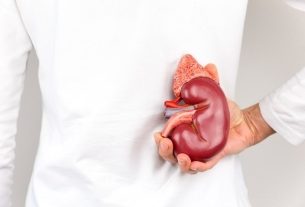Levamisole (Ascaridil) is an antiparasitic remedy indicated for the treatment of ascariasis, caused by the worm Ascaris lumbricoidespopularly known as roundworm, which can cause intestinal infection, but can also develop in other parts of the body, such as the heart, lungs, gallbladder and liver, for example.
This medicine works by paralyzing the movements of the Ascaris lumbricoidesleading to its death and facilitating its elimination through feces, which can occur within 24 hours after taking the dose.
Ascaridil was definitively removed from the market in 2019 by the manufacturing laboratory itself. Therefore, it is recommended that you consult your doctor so that the treatment can be re-evaluated and another medicine that can replace Levamisole can be recommended, if necessary. See other treatments that may be recommended by your doctor.

What is it for
Levamisole is indicated for the treatment of ascariasis, a type of verminosis caused by the worm Ascaris lumbricoides, also known as roundworm. The worm is completely eliminated within 24 hours of use.
How to drink
The Levamisole tablet should be taken orally with a glass of water, in a single dose, preferably at night before going to bed and the dose varies according to age:
- Children up to 1 year old: the normally recommended dose is half an 80 mg tablet, that is, the dose is 40 mg;
- Children aged 1 to 7 years: the normally recommended dose is 1 tablet of 80 mg;
- Adults and children over 7 years old: the normally recommended dose is 1 tablet of 150 mg.
It is important to follow medical recommendations and take Levamisole in the correct dose to avoid the appearance of side effects. It is not necessary to use laxatives to eliminate the worm.
Possible side effects
Some of the most common side effects that may occur during Levamisole treatment are abdominal pain, diarrhea, nausea, vomiting or the formation of small blisters on the skin.
When taken in larger amounts than recommended, Levamisole can cause mental confusion, cramps, dizziness or drowsiness, and in these cases, medical help should be sought immediately or the nearest emergency room.
In addition, Levamisole can cause allergies with symptoms such as fever, chills, excessive weakness, blood in urine or stool, pain or difficulty urinating, pain in the lower back, cough or hoarseness, red spots on the skin or bleeding.
Who shouldn’t use
Levamisole should not be used by pregnant or breastfeeding women, and by people with kidney or liver failure.
Furthermore, this remedy should not be used by people who are allergic to Levamisole.
Levamisole should also not be used by babies under 6 months of age, unless advised by their pediatrician.
Bibliography
- JANSSEN BRAZIL. ASCARIDIL Statement. 2019. Available at: <https://www.janssen.com/brasil/comunicado-ascaridilr>. Accessed on March 28, 2022
- U.S. NATIONAL LIBRARY OF MEDICINE: DRUGS AND LACTATION DATABASE (LACTMED). Levamisole. Available at: <https://www.ncbi.nlm.nih.gov/books/NBK556369/>. Accessed on April 26, 2021
- BRUNT, Tibor Markus. Adverse effects of levamisole in cocaine users: a review and risk assessment. Arch Toxicol. 91. 6; 2303-2313, 2017
- SOLOMON, Nadia; HAYES, Jonathan. Levamisole: A High Performance Cutting Agent. Acad Forensic Pathol. 7. 3; 469-476, 2017

Sign up for our newsletter and stay up to date with exclusive news
that can transform your routine!
Warning: Undefined array key "title" in /home/storelat/public_html/wp-content/plugins/link-whisper-premium/templates/frontend/related-posts.php on line 12
Warning: Undefined array key "title_tag" in /home/storelat/public_html/wp-content/plugins/link-whisper-premium/templates/frontend/related-posts.php on line 13




